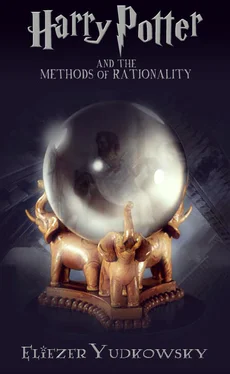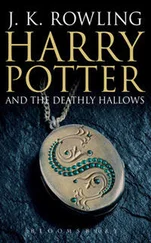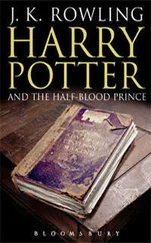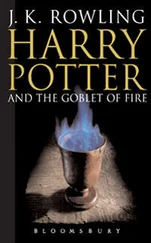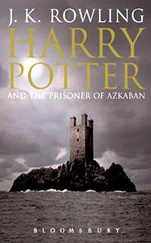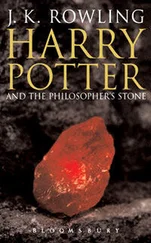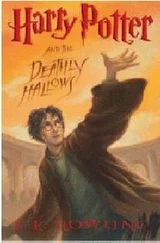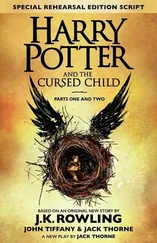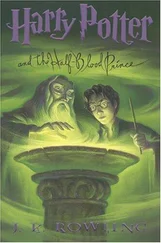Eliezer Yudkowsky - Harry Potter and the Methods of Rationality
Здесь есть возможность читать онлайн «Eliezer Yudkowsky - Harry Potter and the Methods of Rationality» весь текст электронной книги совершенно бесплатно (целиком полную версию без сокращений). В некоторых случаях можно слушать аудио, скачать через торрент в формате fb2 и присутствует краткое содержание. Жанр: Юмористическая фантастика, на английском языке. Описание произведения, (предисловие) а так же отзывы посетителей доступны на портале библиотеки ЛибКат.
- Название:Harry Potter and the Methods of Rationality
- Автор:
- Жанр:
- Год:неизвестен
- ISBN:нет данных
- Рейтинг книги:3 / 5. Голосов: 1
-
Избранное:Добавить в избранное
- Отзывы:
-
Ваша оценка:
- 60
- 1
- 2
- 3
- 4
- 5
Harry Potter and the Methods of Rationality: краткое содержание, описание и аннотация
Предлагаем к чтению аннотацию, описание, краткое содержание или предисловие (зависит от того, что написал сам автор книги «Harry Potter and the Methods of Rationality»). Если вы не нашли необходимую информацию о книге — напишите в комментариях, мы постараемся отыскать её.
Harry Potter and the Methods of Rationality — читать онлайн бесплатно полную книгу (весь текст) целиком
Ниже представлен текст книги, разбитый по страницам. Система сохранения места последней прочитанной страницы, позволяет с удобством читать онлайн бесплатно книгу «Harry Potter and the Methods of Rationality», без необходимости каждый раз заново искать на чём Вы остановились. Поставьте закладку, и сможете в любой момент перейти на страницу, на которой закончили чтение.
Интервал:
Закладка:
Harry had used up all six hours from his Time-Turner, and there were still no clues, and he had to go to sleep now if he wanted to be functional at Hermione's trial the next day.
The Boy-Who-Destroyed-A-Dementor was standing in the middle of the Hogwarts trophy room, his wand dropped at his feet.
He was crying.
Sometimes you call your brain and it doesn't answer.
The trial of Hermione Granger started on schedule the next day.
Chapter 80: Taboo Tradeoffs, Part 2, The Horns Effect
The Most Ancient Hall of the Wizengamot is cool and dark, with concentric half-circles of stone rising up from the lowest center, and simple wooden benches set down upon those elevated half-circles. There is no source of light, but the chamber is well-lit, without any apparent cause or reason; it is simply a brute fact that the hall is well-lit. The walls like the floor are stone, dark stone, some elegant and mysterious conjugation of rock most fine to gaze upon, with a smooth texture that seems to flow and shift beneath its surface. This is the Most Ancient Hall, the oldest place of wizardry that has lasted into the modern day; every other place of power was destroyed in one war or another. This is the Hall of the Wizengamot, which is most ancient because the wars ended with the building of this place.
This is the Hall of the Wizengamot; there are older places, but they are hidden. Legend holds that the walls of dark stone were conjured, created, willed into existence by Merlin, when he gathered the most powerful wizards left in the world and awed them into accepting him as their chief. And when (the legend continues) the Seers continued to foretell that not enough had yet been done to prevent the end of the world and its magic, then (the story goes) Merlin sacrificed his life, and his wizardry, and his time, to lay in force the Interdict of Merlin. It was not an act without cost, for a place like this one could not be raised again by any power still known to wizardkind. Nor yet destroyed, for those walls of dark stone would pass unharmed, and perhaps unwarmed, through the heart of a nuclear explosion. It is a pity that nobody knows how to make them anymore.
In the highest of the rising half-circles of the Wizengamot, on the topmost level of dark stone, there is a podium. At that podium stands an old man, with care-lined face and a silver beard that stretches down below his waist; this is Albus Percival Wulfric Brian Dumbledore. His right hand bears a wand of power, upon his shoulder perches a bird of fire. His left hand holds a short rod, thin and featureless and forged of the same dark stone as the walls, and this is the Line of Merlin Unbroken, the device of the Chief Warlock. Karen Dutton bequeathed the Line to Albus Dumbledore on the last day of her life, scant hours after he returned half-dead from his defeat of Grindelwald with a phoenix flaming brightly at his side. She in turn received the Line from the perfectionist Nicodemus Capernaum, each wizard passing it to their chosen successor, back and back in unbroken chain to the day Merlin laid down his life. That (if you were wondering) is how the country of magical Britain managed to elect Cornelius Fudge for its Minister, and yet end up with Albus Dumbledore for its Chief Warlock. Not by law (for written law can be rewritten) but by most ancient tradition, the Wizengamot does not choose who shall preside over its follies. Since the day of Merlin's sacrifice, the most important duty of any Chief Warlock has been to exercise the highest caution in their choice of people who are both good and able to discern good successors. You would expect that chain of light to miss a step, sometime down through the centuries; that it would go astray at least once, and then never return. But it has not. The Line of Merlin continues, unbroken.
(Or so say those of Dumbledore's faction. Lord Malfoy would tell you otherwise. And in Asia they tell other tales entirely, which may not make Britain's version wrong.)
Upon the bottommost platform of the Ancient Hall there is a high-backed chair, legged and armed and without cushions, of dark metal rather than dark stone, which Merlin did not place there.
The Ministry building that grew up around this place is wood-paneled and gold-washed, bright and fire-lit, filled with bustling foolishness. This place is different. It is the stone heart of magical Britain, and it is neither gold-washed nor wood-paneled, neither fire-lit nor bright.
Filing solemnly into this room are witches and wizards in plum-colored robes each embroidered with a silver W. They carry themselves with an air of seriousness showing that they are well aware that they are terribly, terribly important. They are meeting in the Most Ancient Hall, after all. They are the Lords and Ladies of the Wizengamot, and they consider themselves the greatest folk of the world's greatest magical country. Lesser folk have fallen before them on bended knee in supplication; they are powerful, they are wealthy, they are noble; are they not great?
Albus Dumbledore knows everyone in this room by name. He has taught many of them, though too few have learned. Some are his allies, some his opponents, the rest he courts within the careful dance of their neutrality. All of them, to him, are people.
The current Defense Professor of Hogwarts, if you asked him for his opinion of the Lords and Ladies, would say that while many of them are ambitious, few have any ambition. He would observe that the Wizengamot is exactly where someone like that would end up - that it is exactly the sort of opportunity you would grasp, if you had nothing better to do. Such folk are rarely interesting, but they are often useful; pieces to be manipulated, points to be scored, by the true players of the game.
Not among the rising half-circles, but off to one side among a raised arc for the spectators, next to a witch in pointed hat whose face is lined with apprehension, there sits a boy dressed in the most formal black robes that he owns. His eyes are green ice and abstraction, and he hardly glances at the Lords and Ladies as they bustle in. To him they are just a collection of murmuring plum-colored robes to decorate the wooden benches, visual background for the scene of the Most Ancient Hall. If there is an enemy here, or something to be manipulated, it is merely "the Wizengamot". The wealthy elites of magical Britain have collective force, but not individual agency; their goals are too alien and trivial for them to have personal roles in the tale. As of now, this present time, the boy neither likes nor dislikes the plum-colored robes, because his brain does not assign them enough agenthood to be the subjects of moral judgment. He is a PC, and they are wallpaper.
This view is about to change.
Harry gazed unseeing around the hall of the Wizengamot; it looked quite old and historic and there was no doubt that Hermione could have lectured him about the place for hours on end. The plum-colored robes had stopped arriving, and Harry's pocketwatch, advancing at the rate of three minutes every half-hour, said that the trial was almost due to start.
Professor McGonagall was sitting beside him, and her eyes never left him for more than twenty consecutive seconds.
Harry had read the Daily Prophet that morning. The headline had been "MAD MUGGLEBORN TRIES TO END ANCIENT LINE" and the rest of the paper had been the same. When Harry was nine years old the IRA had blown up a British barracks, and he'd watched on TV as all the politicians contested to see who could be the most loudly outraged. And the thought had occurred to Harry - even then, before he'd known much about psychology - that it looked like everyone was competing to see who could be most angry, and nobody would've been allowed to suggest that anyone was being too angry, even if they'd just proposed the saturation nuclear bombing of Ireland. He'd been struck, even then, by an essential emptiness in the indignation of politicians - though he hadn't had the words to describe it, at that age - a sense that they were trying to score cheap points by hitting at the same safe target as everyone else.
Читать дальшеИнтервал:
Закладка:
Похожие книги на «Harry Potter and the Methods of Rationality»
Представляем Вашему вниманию похожие книги на «Harry Potter and the Methods of Rationality» списком для выбора. Мы отобрали схожую по названию и смыслу литературу в надежде предоставить читателям больше вариантов отыскать новые, интересные, ещё непрочитанные произведения.
Обсуждение, отзывы о книге «Harry Potter and the Methods of Rationality» и просто собственные мнения читателей. Оставьте ваши комментарии, напишите, что Вы думаете о произведении, его смысле или главных героях. Укажите что конкретно понравилось, а что нет, и почему Вы так считаете.
